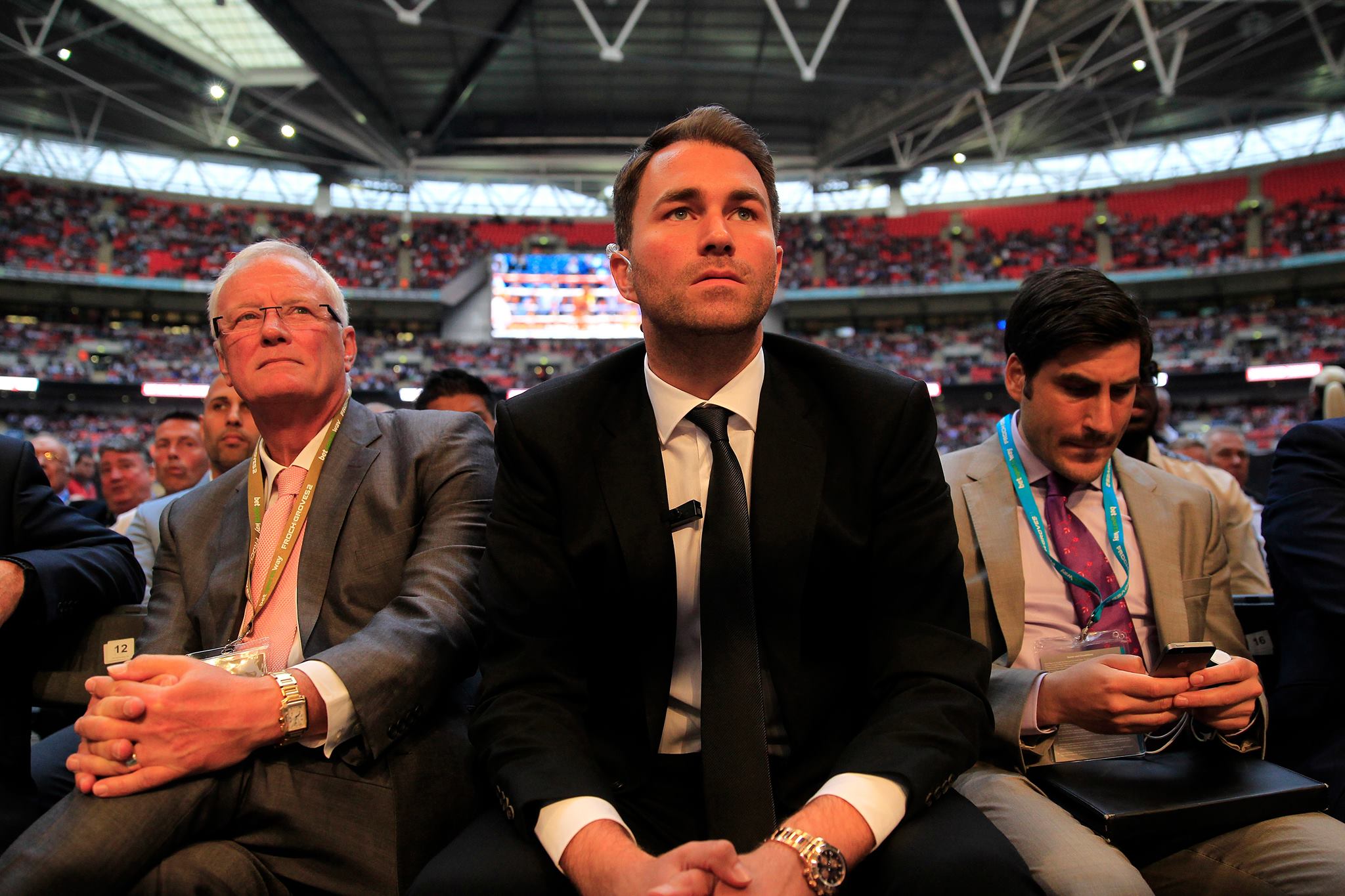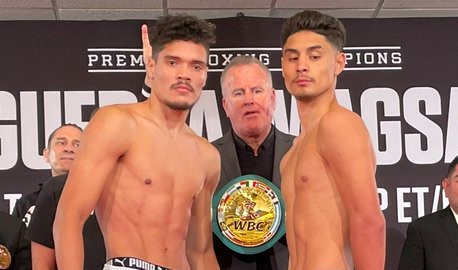by B.A. Cass
I woke up on Sunday feeling the weight of Rigondeaux’s loss in a way I hadn’t anticipated, a feeling that stuck with me all day.
Although I was rooting for him, I had prepared myself for the possibility that Rigondeaux would lose. After all, I told myself, he’s moving up two weight classes, he’s a good deal older than Lomachenko, and he has been fairly inactive over the past few years. It was quite plausible that he would be overwhelmed by his opponent. I was prepared for a stoppage by the referee or even a KO.

Of course, I also envisioned Rigondeaux winning. He is perhaps the most patient boxer of his generation, perhaps of all time, and patience combined with elite skill can be a very unsettling thing for any opponent, even someone as remarkably talented as Lomachenko. It wasn’t hard to imagine Rigondeaux making Lomachenko’s ring theatrics look like the diversionary tactics of a glorified amateur without much punching power.
I had prepared myself for all scenarios, except for the one that occurred.
What occurred to me, though, as I struggled through the morass that became my Sunday is that there are important differences between team sports and sports like boxing. Basketball, football, and soccer—fans of these sports may place their hopes on one player, but ultimately, they’re rooting for a whole team. But with boxing, or for that matter with sports like tennis and golf, fans are not rooting for a group of people to win. It is stating the obvious to say that in boxing, fans are rooting for one person, but the point can’t be emphasized enough.
Fans of most sports come together in large stadiums or in crowded bars to watch their respective competitive events. Boxing fans are no exception: 90,000 fans were at Wembley Stadium to see Anthony Joshua defeat Wladimir Klitschko; 12,000 fans attended Madison Square Garden to see Sadam Ali score an unexpected victory over Miguel Cotto; and 5,000 people attended the Theater at MSG this weekend to see the dull, uneventful fight between Lomachenko and Rigondeaux.
Yet even though boxing fans pack stadiums and event halls, boxing remains an intensely individual sport. As spectators, we become so attached to a fighter that even if others are rooting for the same individual, we do not see ourselves as part of a group of fans. We are individuals rooting individually for a single man or woman to win. And if that person loses, we must face that defeat in a very lonely way.
There’s also a distinction that needs to be drawn between sports like golf and tennis and the sport of boxing. Golf and tennis are invented games. The former involves people swinging metal clubs at a little ball that they’re trying to put into a hole in the earth. The latter involves using a weaved apparatus to hit a fuzzy medium-sized ball over a net and at such an angle and with so much speed that the opponent cannot slam it back over the net.
Boxing is not so much an invented game as it is brutality harnessed. Boxing makes sport of humanity’s inclination for violence, an inclination which has been around since our species has walked this planet. That is why many people understandably find the sport too horrific to watch.
At Wimbledon this past year, the Croatian tennis player Marin Cilic was brought to tears by a blister. I’m sure he was in pain. But the fact that he had to call a timeout so that he could cry into his shirt underscored for me how little pain most athletes are used to putting up with. More than any other sport, boxing tests one’s ability to endure insurmountable pain. Football players sustain long-term injuries, but even football cannot compete with the intensity and brutality that is required of fighters who battle each other at close range. It is one thing to get tackled; it’s another thing to exchange blows and get rocked with punches for twelve rounds, or for any number of rounds for that matter. It is for this reason that we do not use the word “game” when referring to a boxing match. We call them “fights.” There’s too much at stake to consider boxing a form of play.
Boxing touches on something far more basic and integral to human experience than any other sport—we watch boxing to see fighters, particularly in loss, survive. Orlando Salido, who incidentally is the only man to have beat Lomachenko in a professional bout, retired this weekend after being dominated by Miguel Roman for the better part of nine rounds. Salido lost, but we saw in him the will to continue. If the referee hadn’t stopped the fight, he would have no doubt kept going, kept fighting. Yes, he lost, but he also survived—and with our respect for him intact. Cotto lost too, but he fought to the end with an injured bicep.
With Rigondeaux it was different. He just gave up, apparently because of a hand injury. It might seem the smart move for a man to give up when injured, but in the sport of boxing giving up in such a manner approaches nihilism. After all, boxing is a sport not simply replete with injury, but a sport that practically requires injury. Certainly, Rigondeaux had fought while injured before—and if he hadn’t, as remarkable as that may seem to us, he must have known he would one day get injured during a fight.
Why did Rigondeaux choose not to get off his stool after the sixth round in the biggest fight of his life? He’s been through so much in his life—surely this was not his toughest moment.
After a failed attempt to defect from communist Cuba, Rigondeaux finally made it to the US where he had a promising, potentially lucrative professional boxing career to look forward to. That didn’t quite materialize. His first promoter, Bob Arum, seemed to work against him at times and they eventually parted ways. Since then, Rigondeaux has failed to elicit much public support, and he had resort to selling his two Olympic medals to feed his family. Perhaps Rigondeaux has had his hopes stalled and halted so many times that he has ceased to care much about anything anymore, even his own career.
And so, it wasn’t Rigondeaux’s loss that especially affected me—it was seeing him give up for no good reason, it was realizing that the man sitting on the stool had lost interest in the very thing that he had worked so hard to achieve.
Follow B.A. Cass on Twitter @WiththePunch


















